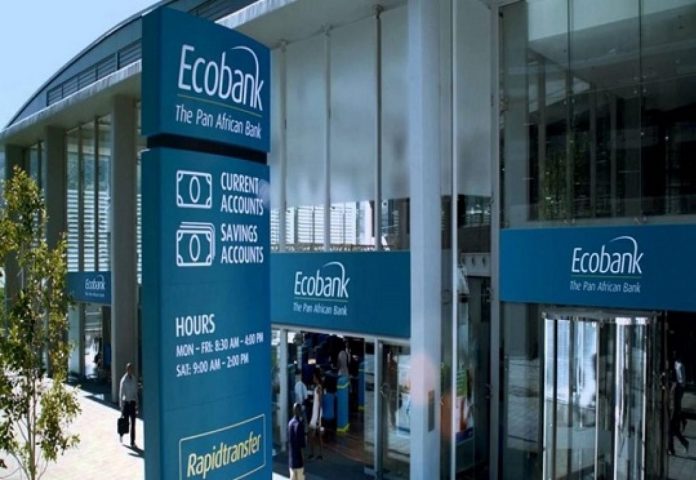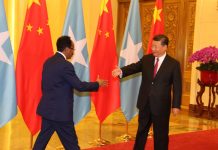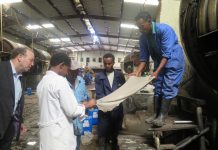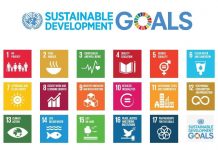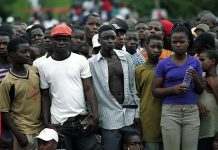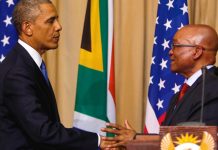If you look at the United States, the biggest companies are Coca-Cola, GM, Wal-Mart, etc. What that tells us is that nationals have a stake in good governance of an economy, and that forms a spur for development.
The lesson that Africa is beginning to learn, and you are beginning to see that with Dangote and MTN, is that Africans, when they believe in Africa and they make the investment and move from talk to execution comes from the spur of the transformation of the country.
We had the same belief in Ecobank. When I joined Ecobank we were in five countries. We had the belief and we had the commitment to transform. So we moved from less talk to action and over a period of 12 years we moved Ecobank into 33 African countries. We saw Africa as a territory that we understood; a market for us. When people talk about the Central African Republic, you can see the fear in their faces, but we were the biggest in that country – very profitable. Because you go from the perception to the reality.
The francophone zone was started before the Eurozone. They have had one central bank for the last 70 years. They have shown the positive impact of nationals working together to shape development. So, in spite of the rebel activity, the currency remains stable. We also happen to run the biggest bank in Chad, in Liberia. We like difficult countries because others are scared – they don’t want to come.
Less talk more action.
The biggest banks in the USA are American banks. The biggest banks in the UK are British. The biggest banks in Germany are German banks; in China they’re Chinese banks. In France they’re French banks. In South Africa, they’re the South African banks, in Nigeria, they’re Nigerian banks. If you don’t have the finances, you can’t develop. You have got to have the money.
If you look at the major transformation of the Nigerian economy, it’s because the banks have been consolidated into the biggest banks that can finance development. In shaping outcomes, African governments and authorities have to look to create the right financial environment. Small banks do not finance development. The importance of financial transformation is not always understood. It is very important in changing our economy.
SMEs are the biggest risk of banks – they don’t pay. So they are the engine of growth but they are also the source of very bad loans. The answer lies somewhere in the middle. You need to do the big banks and the big companies.
SMEs do not develop the country. You need large companies to create the chain. For example, South Africa has one of the best-developed agro-industries in the continent. Move out of South Africa and agribusiness is struggling to survive because the chain is not there. If you are a farmer, whom to do you sell to?
When SMEs have a good proposition, they have access. MTN borrows from Nigeria in local currency at a very high rate, but they can do it because they pass it to customer. The cost of money is important. But if you don’t have good infrastructure, you have to pay more and that gets into your cost.
We found out that it is cheaper to employ British bankers. The cost of money is not a banking issue but an institutional issue. Why would I lend an SME at 10 percent when I can get a risk-free loan at 3 percent? The challenge for all of us is, if we can work through these things and have the government manage better, that will reduce the cost of borrowing. Fix the infrastructure. Fixing the government borrowings, fixing the people cost, fixing the operating cost and all of that will reduce the cost of money. That’s what gets factored into cost.
African banks are small. They cannot finance development. They are prone to shock. Their governments can’t support them. If you want to finance SMEs, in the long run they are profitable, but in the short run they can be dead.
Achievement is a state of mind. In every single country we have looked at, beyond the statistics, the fundamental change that resulted in economic development and market transformation is in the mind. When you believe in Africa, when you believe in what you want and take a long-term view [you will invest].
Nestle has been in Africa for more than 120 years. They have never left despite the problems. They know something. Unilever never left. On the contrary, they invested more.
Perception and the reality are two different things. Africans and Africa can achieve a lot if they change their mind. The mindset is the most difficult thing to change. The biggest challenge we face today, beyond the fact that Africa is fashionable, is changing minds.
Ecobank represents an example of trying to do something in the market in spite of the negative perceptions. Ecobank was started in the height of the debt crisis of the 1980s. It now has about 1,200 branches, employs about 12,000 Africans, and is in 34 countries.
The interesting thing is, it is stateless. It’s based in Togo, the board of directors come from nine or ten nationalities, management from fourteen nationalities. It is an example of harnessing the collective know-how of Africa and Africans.
The fact that the group went beyond the perception and said “let’s build something pan-African” has meant that the concept of a pan-African entity is not strange.
I’d like to conclude by quoting Nelson Mandela: “It always seems impossible until it is done.” The future is Africa, but Africa is also the future.
Arnold Ekpe is the former Group CEO of Ecobank. The above is an edited excerpt of remarks he made at Columbia University’s 2013 Africa Economic Forum on March 2, 2013, Columbia University, New York.


